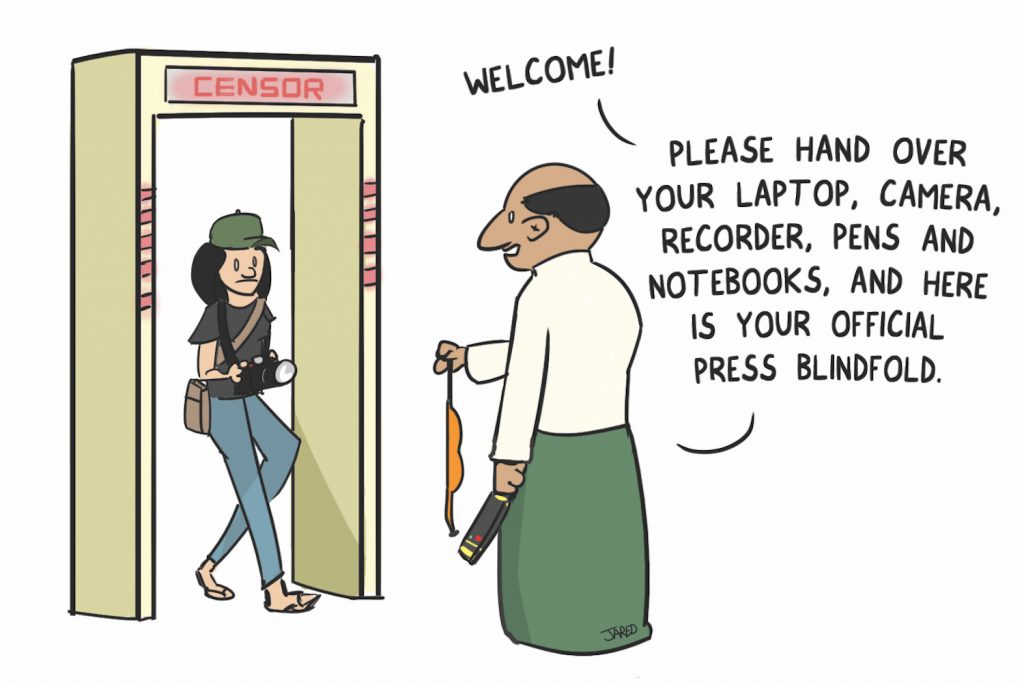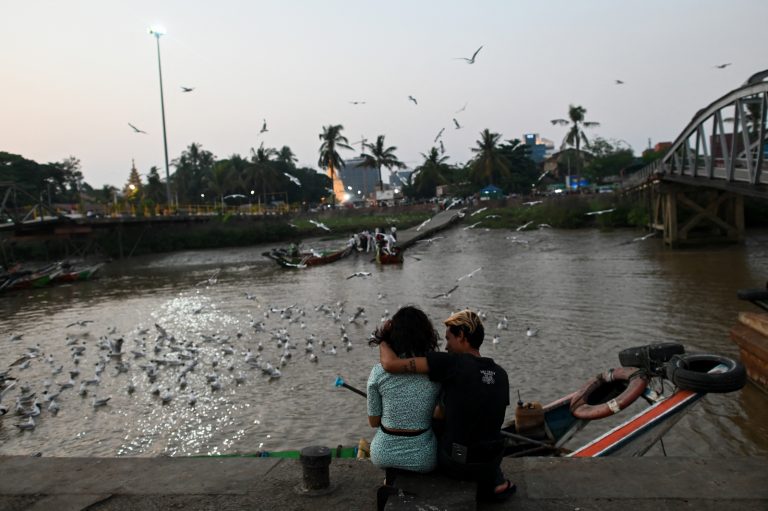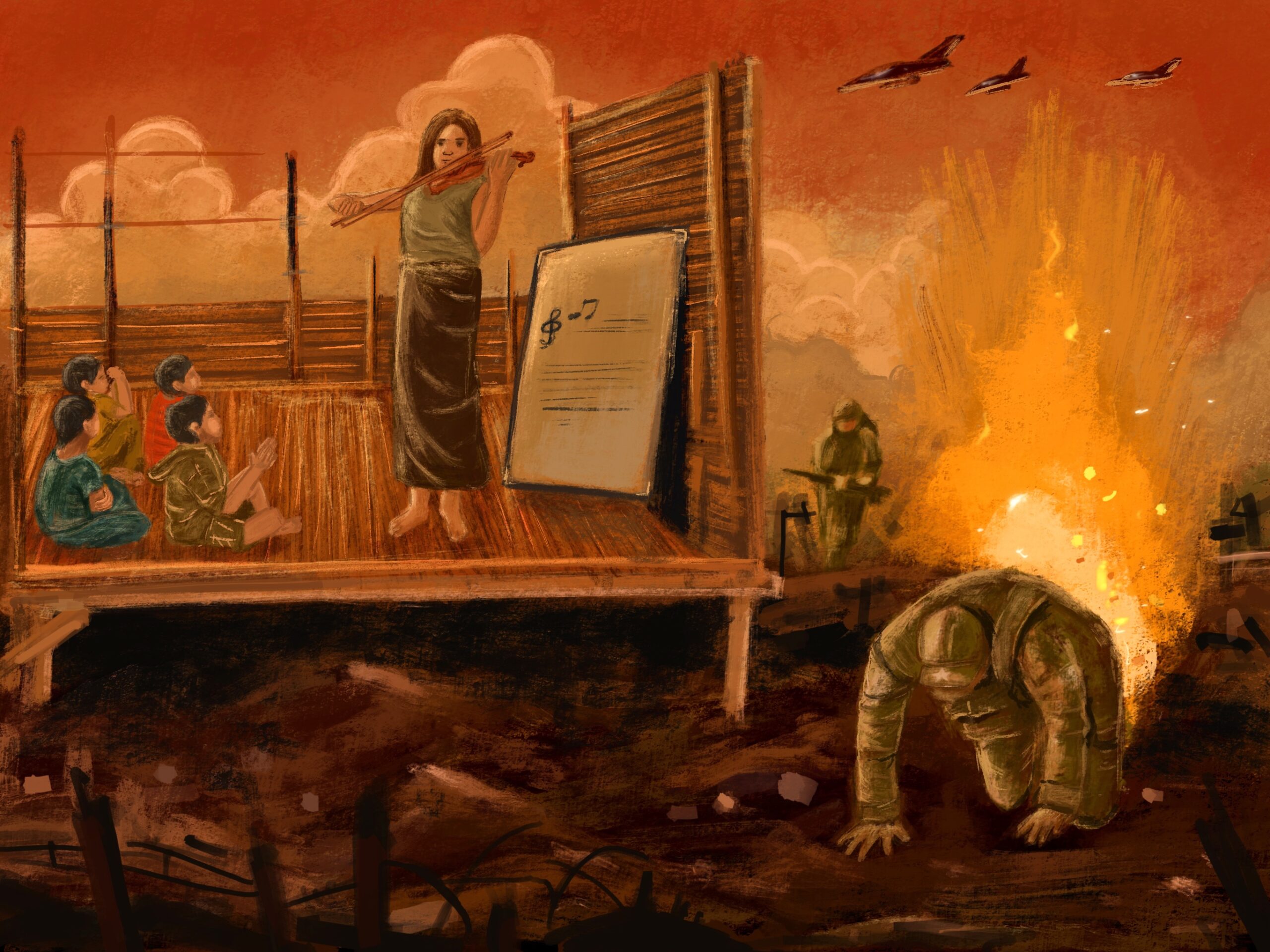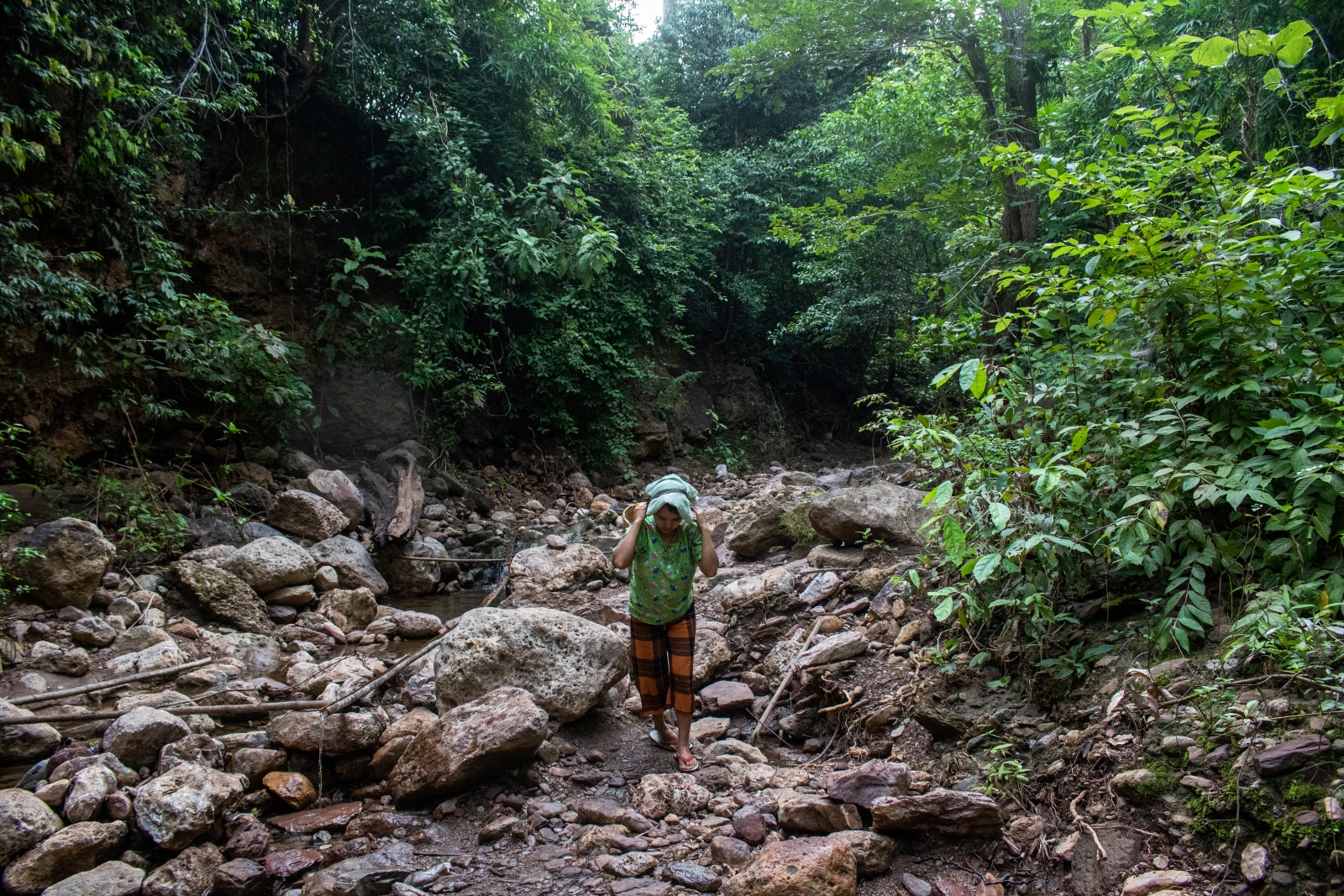Transparency and accountability are elusive qualities among the bureaucrats at the Kayah State election sub-commission – and please turn off that recording device, too.
By EI EI TOE LWIN | FRONTIER
After the plane touched down in Loikaw, I went straight to the Kayah State election sub-commission office. I was there covering election preparations in the state, and I hoped to gather some information from the sub-commission before leaving the capital to survey the state more broadly. But I was anxious; a source in Kayah had told me the sub-commission doesn’t like to share information, even with political parties.
When the photographer and I arrived at the two-storey building we introduced ourselves and asked to meet the sub-commission chairperson. He was not in, they said, but they’d let him know we’d like an appointment. I didn’t have time to wait. I called the chairperson directly. He wouldn’t be in Loikaw for another four days, he said, so I called the sub-commission’s secretary, who was sitting upstairs.
The first words he uttered as we entered his office were: “No photos or videos.”
We introduced ourselves and I explained the purpose of my visit. He answered questions about the number of eligible voters in Kayah and the names of the political parties contesting seats. But when I asked about the number of eligible military voters and their families, his reply surprised me.
“Why should I give that information to a media outlet I don’t know anything about?” he said. “Why should I trust you?”
I was insulted. I had given him a brief description of the magazine before asking any questions. I tried to be patient.
“Is it confidential information?” I asked.
“Their names are on the voters’ lists displayed at the polling stations. You can check them yourselves,” he said.
I told him it would be impossible for me to check every voter list in the state, but the rudeness continued.
“Find out for yourself,” he said. “You came for your own benefit; why should I give you that information? You can ask at the weekly press conference in Nay Pyi Taw.”
For my own benefit? I refused to let his outburst go unchallenged.
“Everybody has the right to know about the election,” I told him. “I have come here to gather information to share with our readers.”
I asked a few more questions but, suddenly, he demanded I delete the cell phone recording of our conversation I’d been making. I told him the recording would help me transcribe quotes and ensure their accuracy, and he again told me to delete it. I put the phone in my bag. I asked again for a photo. He said no.
On to Bawlakhe Township, once more to the district election sub-commission, where I again interviewed the secretary. The secretary in Bawlakhe was much more forthcoming with information than his Loikaw counterpart. He said he’d answer any question, but he too said no photos or audio recordings. Why are these guys so camera shy?
Outside, I snapped shots of A4 sheets pasted on a noticeboard, lists of potential candidates mostly. The staff told me to stop. But why? The documents were publicly displayed and meant to be read. The candidates were due to be verified later that day.
Again at Shadaw and several other townships, subcommission staff grew anxious at the sight of a camera and could not say why. Of all those we spoke to throughout the state, only one agreed to be photographed.
I became a journalist just before the 2010 general election at the Myanmar Times, when I wrote about the experiences of voters in my home township of Hmawbi, on Yangon’s northern outskirts.
Later I covered the 2012 by-elections. The Union Election Commission was headed by U Tin Aye, a Thein Sein appointee, and we relied on his appointed commission members heavily for information. They always picked up the phone and answered tough questions. They did it again in 2015. They even let us take their picture.
The NLD-appointed members of the UEC began their term agreeing to interviews, but by the 2018 by-elections, they’d stopped answering their phones.
UEC officials’ reluctance now to speak with journalists is chilling. If issues arise with the electoral process, how do you raise them with a silent judge?







